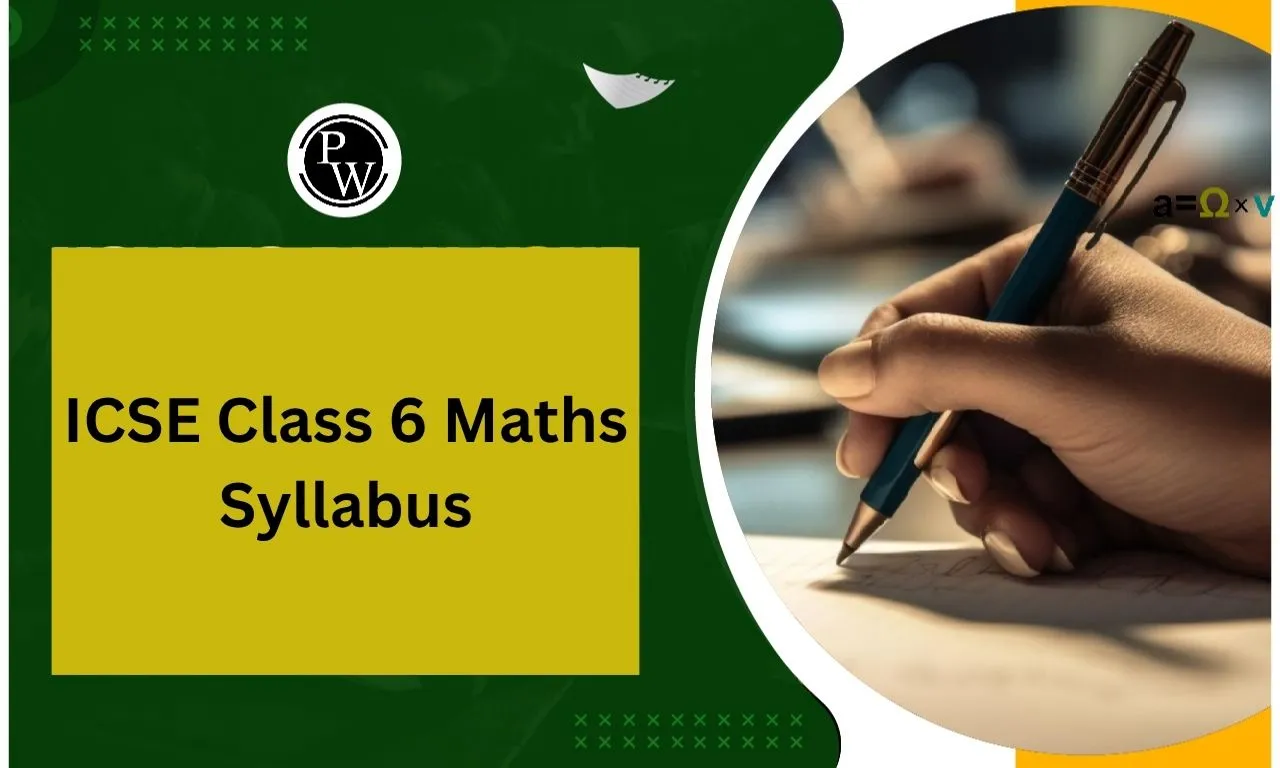The ICSE Class 6 Physics syllabus introduces students to basic scientific concepts like measurements, motion, force, energy, and simple machines.
The ICSE Class 6 syllabus is designed to build a strong foundation for higher classes through interactive learning and real-life applications. The exam pattern generally includes objective and descriptive questions to test conceptual clarity and application.
Students are encouraged to regularly revise the syllabus and solve previous year papers to understand question trends and improve performance.
Practicing with sample papers also helps in time management. A clear understanding of the exam pattern and syllabus ensures better preparation and confidence during the final exams.
ICSE Class 6 Physics Syllabus
The ICSE Class 6 Physics syllabus introduces students to the fundamentals of science through engaging and practical topics.
It lays the foundation for higher-level concepts by covering essential chapters such as Matter, Force, Light, and Magnetism. These topics help build curiosity and scientific thinking.
Check the table below for the complete list of chapters included in the syllabus.
|
ICSE Class 6 Physics Syllabus |
|
|
Chapter Number |
Chapter Name |
|
Chapter 1 |
Introducing Science |
|
Chapter 2 |
Matter |
|
Chapter 3 |
Physical Quantities and Measurement |
|
Chapter 4 |
Force |
|
Chapter 5 |
Simple Machines |
|
Chapter 6 |
Light |
|
Chapter 7 |
Magnetism |
Detailed Overview of ICSE Class 6 Physics Syllabus
Here is a detailed overview of the ICSE Class 6 Physics syllabus based on the chapters:
Chapter 1: Introducing Science
This chapter explains what science is, its importance in daily life, and how scientific methods are used to observe, question, and experiment. It introduces the basics of laboratory safety and tools.
Chapter 2: Matter
Students learn about the states of matter—solid, liquid, and gas—their properties, and how matter changes from one state to another. It also introduces concepts like mass, volume, and density.
Chapter 3: Physical Quantities and Measurement
This chapter focuses on measuring physical quantities such as length, mass, and time. It introduces standard units, measuring instruments, and the importance of accuracy and estimation in science.
Chapter 4: Force
Students explore what force is, how it is applied, and its effects on objects. The chapter also covers different types of forces like muscular, magnetic, and gravitational force.
Chapter 5: Simple Machines
This chapter introduces basic machines like levers, pulleys, and inclined planes. Students learn how these machines make work easier and how they are used in everyday life.
Chapter 6: Light
The chapter explains the nature of light, how it travels, and how it helps us see things. It also covers reflection, shadows, and the difference between luminous and non-luminous objects.
Chapter 7: Magnetism
Students learn about magnets, their properties, and how they interact with materials. The chapter also covers magnetic poles, attraction and repulsion, and practical uses of magnets.
ICSE Class 6 Physics Syllabus PDF Download
To help students and parents easily access the curriculum, we have provided the ICSE Class 6 Physics syllabus in a convenient PDF format. This syllabus outlines all the important chapters that will be covered throughout the academic year.
It serves as a useful reference for planning studies and tracking progress. Whether you're beginning your preparation or revising topics, having the syllabus on hand is essential. Download the PDF from the link below and stay organized in your learning journey.
ICSE Class 6 Physics Syllabus
Study without using the internet
Benefits of Using the ICSE Class 6 Physics Syllabus
Here are the benefits of using the ICSE Class 6 Physics syllabus:
-
Structured Topic Coverage
The syllabus presents a logical sequence—from basic concepts like matter and measurement to more advanced topics like magnetism and light—ensuring smooth learning progression. -
Strong Conceptual Foundation
It introduces key physics concepts at an early stage, building a solid base for future studies in science and engineering streams. -
Clarity of Learning Goals
Students clearly understand what is expected to be learned in each chapter, which helps in focused study and better retention. -
Encourages Scientific Curiosity
Topics like “Introducing Science” and “Simple Machines” nurture observational skills, curiosity, and a love for experimenting and discovery. -
Helps in Planning and Time Management
With a clear list of chapters, students can create effective timetables for studying, revising, and tracking their progress throughout the year. -
Boosts Exam Readiness
By sticking to the syllabus, students ensure they’re not missing any important topics that may appear in exams. -
Supports Project and Activity Work
Chapters are designed to encourage practical learning through experiments and real-life examples, essential for ICSE’s hands-on learning approach. -
Useful for Teachers and Parents
Teachers can design lesson plans more efficiently, and parents can monitor their child’s learning by referring to the topics outlined in the syllabus.
ICSE Class 6 Physics Syllabus FAQs
What is the first chapter in the ICSE Class 6 Physics syllabus?
How many chapters are there in the syllabus?
Does the syllabus include practical topics?
Is Magnetism part of the Class 6 Physics syllabus?



